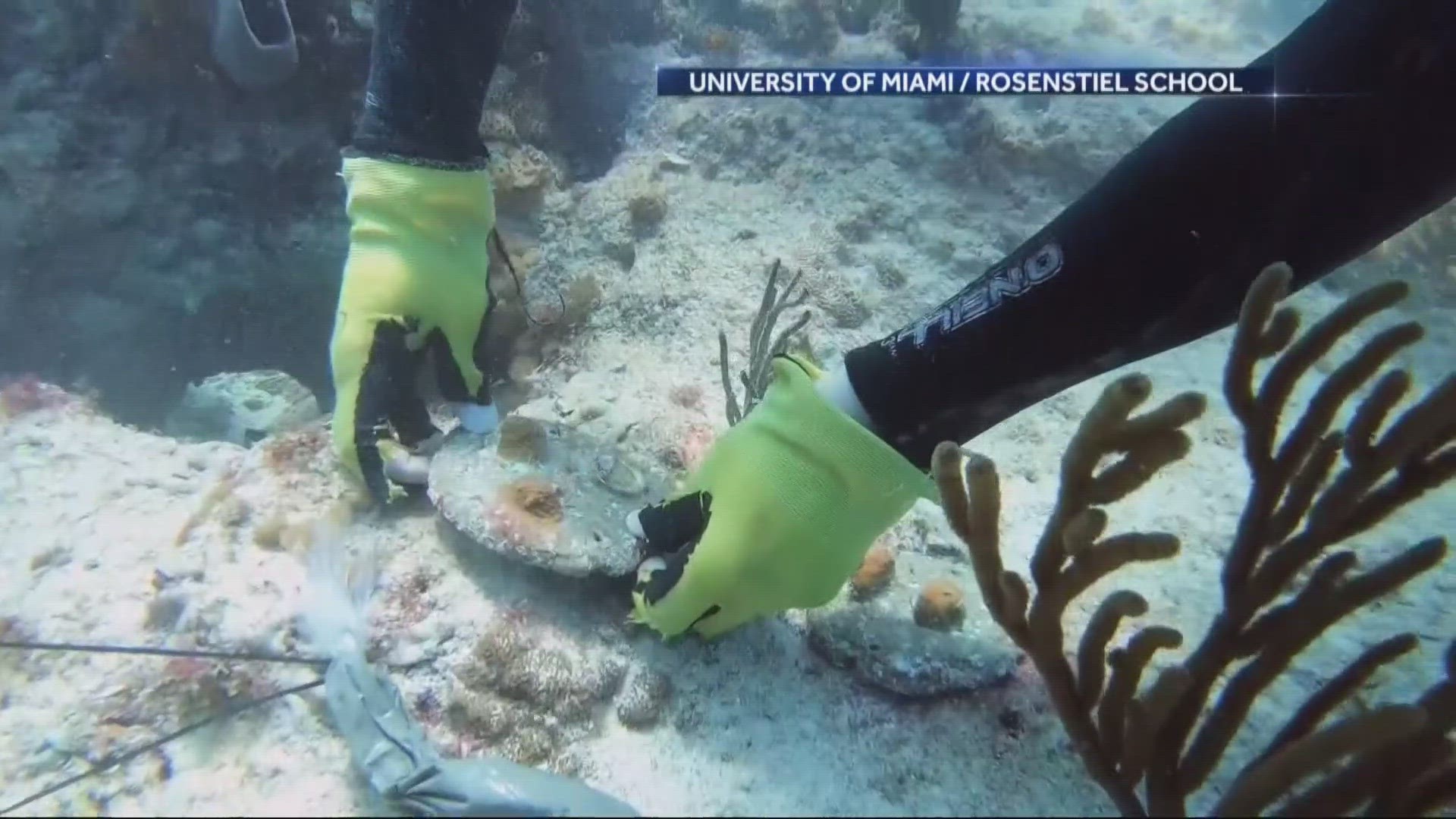JACKSONVILLE, Fla. — A morning thunderstorm cooled off Atlantic Beach a bit Tuesday morning, but the water is warmer than it is usually in July.
In South Florida, many beaches are seeing water temperatures they don't see until August.
"It's so hot, and it's been so hot for so long, that it's leading to elevated water temperatures," Jacksonville University Marine Science Research Institute Director Dr. Quinton White.
White says the temps are having adverse effects on sea life.
"We've seen this coral bleaching problem, which for whatever reason, the corals extrude zooxanthellae they use to photosynthesize, and they literally turn white, get sick and die," said White. 'It's a major, major problem."
White says Jacksonville's reefs won't be changing color due to coral bleaching.
"We do, in fact, have coral reefs off shore Jacksonville, but they're deepwater reefs as opposed to the Caribbean reefs people are thinking about," said White. "The corals eat other things, algae and what have you, as opposed to photosynthetic reefs."
Even though North Florida reefs aren't as impacted by the warm water, the research team at JU is working on a way to help the reefs down south.
"Doing some work with rearing corals that can resist coral bleaching, then deploying those in the Caribbean," said White. "There is some work being done to mitigate the problem, but it's massive."
While the North Florida reefs won't be a victim of warm ocean water, White is concerned about what the heat will mean for the St. Johns River.
"We have been watching that this year, we haven't had an algae bloom yet, said White. "I think we could get one later this summer, particularly if it stays so hot."
White says if we have enough rain, it will cool the water a bit and hopefully prevent any algae blooms.

